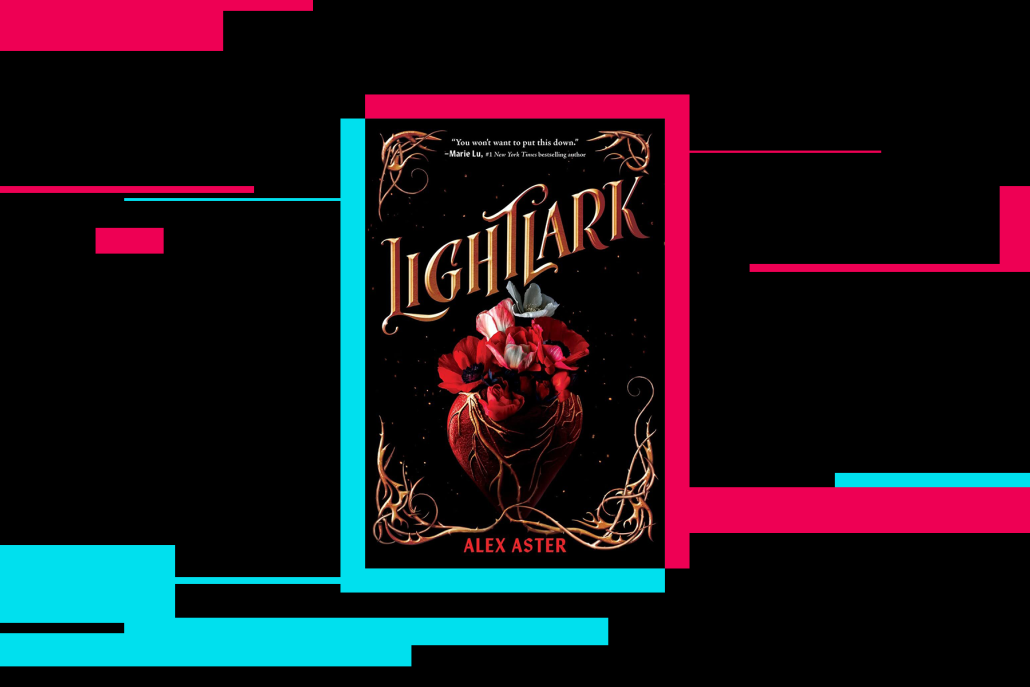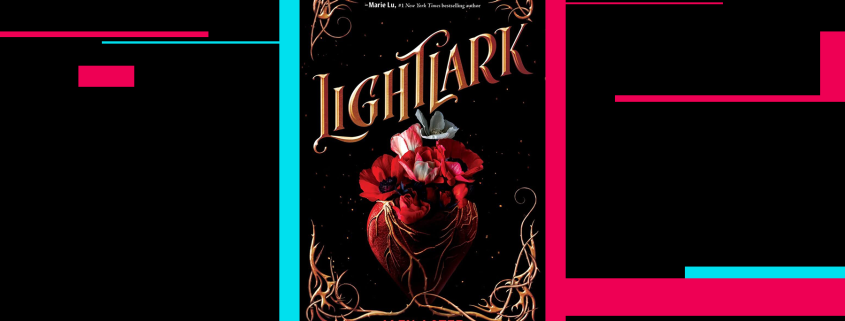‘Lightlark’: the very first clickbait novel

Alex Aster first introduced her fantasy novel “Lightlark” to TikTok in March of 2021. She promised a novel similar to “The Hunger Games” and “A Court of Thorns and Roses” but with a more diverse cast. Aster and “Lightlark” quickly went viral on “Booktok” — a sect of TikTok where users discuss and set book trends — as readers were excited to finally see a Latina author in the spotlight of the fantasy genre.
Within a week of her newfound internet fame, Aster’s book went to auction, and she was offered a six-figure deal with Amulet Books.
Aster continued to advertise her novel on TikTok leading up to its release on August 23. Videos filled with quotes from the novel, and promises of classic young adult literary tropes such as rivals to lovers, a love triangle and the villain gets the girl, filled her TikTok profile.
Aster’s positive public image began to crumble after advance reader copies of the novel were released in mid-August. As popular creators began to review their advanced copies of “Lightlark,” people quickly came to realize the book was completely different from what Aster advertised on social media.
Notably, some of the most popular quotes and situations promised on her TikTok account were absent from the novel. The mature love triangle Aster promised was met with lukewarm reactions by ARC readers. She also teased a scene where her main character is regaining consciousness during a battle while the villain is attacking those who harmed her, a popular scenario in enemies-to-lovers novels. According to ARC readers, this scene was nowhere to be found in the book. By inaccurately advertising “Lightlark,” Aster garnered pre-orders with misrepresentative material.
Even worse, following Aster’s promises of diversity, fans were disappointed with the representation in the novel.
One fan took to TikTok to complain. “There was no diversity or representation. There was only one Black ruler and he was [gay]. It was giving tokenism. Go girl! Give us NOTHING,” user @bookish.puertorican posted.
After Aster received a movie deal with Universal Pictures while the novel was still in the pre-order stage, fans began suspecting that her miraculous rise to fame maybe wasn’t so miraculous after all.
In addition to misrepresenting the novel, Aster shared the years of failure and hard work over the last decade she weathered to frame her publishing journey as inspirational. Her online presence was carefully crafted to make it appear as though “Lightlark” was her first big break into publishing.
However, this wasn’t the case. Her middle-grade novel, the “Curse of the Night Witch,” was released in mid-2020. Aster promoted the “Curse of the Night Witch” with the same publishing difficulties narrative she pushed with “Lightlark.” But as soon as she began promoting “Lightlark,” Aster conspicuously stopped talking about “Curse of the Night Witch” completely.
After coming under fire for this inconsistency, Aster made it clear that “Curse of the Night Witch” was published under a “small book deal,” and that she didn’t make much from it. While “Curse of the Night Witch” currently has a 3.87 star on Goodreads, higher than “Lightlark’s” 3.19 star rating, it was commercially less successful.
Although information on Aster’s history is available to the general public, it is unlikely that the average TikTok user is spending time researching her. Consequently, Aster was able to successfully advertise herself as an underdog.
But Aster is anything but. She denies using her parents’ fortune to help her career, but people suspect that Aster’s parents still came to her aid — the Times Square billboard costing five figures certainly didn’t help her case.
After the controversy, individuals began review bombing Aster’s Goodreads profile. “Lightlark” went from five stars to a harsh two in just a few days.
Aster quickly came to her own defense and claimed that everything she advertised would be in the final copy of the book, just not verbatim. She admitted to her privileges but denied using them to aid her publishing journey. Followers were not completely satisfied with the response, but somehow “Lightlark” still debuted at #1 on the New York Times Bestseller List — which is likely a result of the massive number of people who pre-ordered the novel under false pretenses.
Criticism about Aster’s marketing strategies continue, especially now that followers are scrutinizing her under a more rigid lens. User @the.page.sage made a video alleging Aster was taking part of scarcity marketing, and disproving Aster’s claims to have sold out by sharing a screenshot of its availability for order on the Barnes & Noble website.
People are accusing her of providing a low supply of her novel, so it could sell out with fewer purchases to make her appear more in demand than she is.
Aster attempted to market her book so widely that she almost forgot “Lightlark” is a young adult novel. She acquired massive amounts of pre-orders at the expense of age-appropriate readers and positive reviews.
Alex Aster’s journey is a cautionary tale. It shows the power that social media has over public opinion and how influential this opinion is in creative industries. The public may never know if Aster had family ties to her publishing house or a personal connection with Universal Pictures.
However, it is undeniable that Aster would never have achieved her level of success without TikTok. As social media becomes the top marketing platform, the relationship between fan and author has never been more vital in the publishing industry. Thanks to the algorithm and her sometimes tacky techniques, she succeeded in reaching the largest audience possible.
Now, for the first time ever, we have a clickbait novel.

